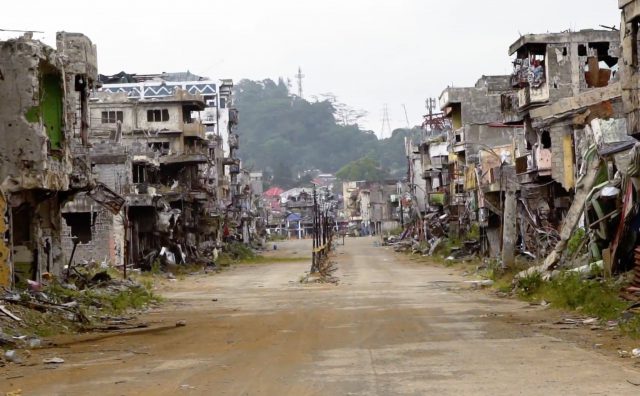Glocalism comes of age in the Indo-Pacific

In a new ASPI report, Terrorism in the Indo-Pacific: glocalism comes of age, I assess al‑Qaeda and Daesh’s commitment to establishing a presence in the Indo-Pacific from which they intend to promote their destructive ideology.
Salafi-jihadi ‘glocalism’ refers to the meshing of local issues with the transnational goals of al‑Qaeda—restoring Islam and the umma to their glory days—and advancing the idea of shared grievances through a program of action (terrorism).
The report shows that the Indo-Pacific is an important sphere for the evolving Salafi-jihadi campaigns of al‑Qaeda and Daesh, not only because foreign fighters are slowly filtering into the region, bringing new knowledge and capability, but also because there are many locally based push and pull factors that create conditions that al‑Qaeda and Daesh can exploit.
These conditions range from oppressive policies such as those introduced by the Chinese government in Xinjiang Province, where there’s a preference for a ‘strike first, strike hard’ approach, to political shenanigans undertaken by the ruling party in Bangladesh such as placing thousands of its political opponents in prison, to disillusionment with globalisation. Al‑Qaeda and Daesh exploit these conditions.
My report focuses on Marawi, Bangladesh and Xinjiang Province. Marawi was clearly a game changer in that it took the Philippine military more than 150 days to take the city back. It also featured in the June 2017 issue of Rumiyah—the Islamic State online magazine—under the headline ‘The jihad in East Asia’. It’s likely to serve as a useful propaganda tool for Daesh because of the length of the battle and the fact that the insurgents used drones, which indicates a level of sophistication that hasn’t been seen for years in the region. The battle also saw several foreign fighters—Indonesians and at least one Moroccan—travelling to participate in the conflict.
I also note how the mistreatment of the Rohingya is being used by Salafi-jihadi groups to inspire activism. The Malaysian police in Kelantan State, which shares a border with Thailand, have identified more than 100 smuggling ‘rat trails’ the groups use (in May 2017 the police busted a Daesh cell that was smuggling weapons into Malaysia from southern Thailand and preparing to launch an attack in Malaysia). I also point out that Sunni extremists such as Slamet Maarif, the spokesperson of the Islamic Defenders Front, an extremist Sunni group located in Indonesia, have called on Muslims to help the Rohingya:
We want to help in any way we can. We are even prepared to wage jihad there if need be. That is why one of the main requirements for our recruits is the willingness to die as a martyr. Muslims are being slaughtered there. Our volunteers will be facing armed military officers and civilians there. That is why we want young men who are willing to die for their religion.
In my report I highlight the importance of Bangladesh to al‑Qaeda and Daesh. In 2014, Ayman al‑Zawahiri authorised the establishment of al‑Qaeda in the Indian subcontinent under the leadership of Uthamn Basha, Zawahiri’s son-in-law. Basha was a senior leader in the Movement of the Taliban in Pakistan. The goal of the group, in the words of Zawahiri, is to defend the ‘vulnerable in the Indian subcontinent, in Burma, Bangladesh, Assam, Gujurat, Ahmedabad and Kashmir’.
In 2016, Daesh established a branch (Soldiers of Khilafah in Bengal) in Bangladesh under the leadership of Sheikh Abu Ibrahim al‑Hanafi. According to al‑Hanafi, Daesh’s goal was to facilitate ‘guerrilla attacks inside India simultaneously from both sides and facilitate creating a condition of tawahhush [management of savagery] in India along with the help of the existing local mujahidin there’.
Over the last few years, Canberra has reached out to its partners in Southeast Asia with the intention of developing better mechanisms to counter violent extremism and Salafi-jihadi activity. Australia played an important role in supporting the Philippine army’s campaign to retake the city of Marawi, but we haven’t looked to South Asia or to Central Asia
The May 2018 ASEAN–Australia Special Summit highlighted a shared commitment to ‘respecting international law and the rules-based order which underpins our way of life, secures our prosperity and safety’ as being the pinnacle to countering terrorism.
Nevertheless, as was recently shown in Surabaya, more is needed to ensure that what transpired in East Java isn’t part of an evolving trend aimed at sowing panic and revulsion (and emphasising the devotion of Daesh followers), and promoting sectarian violence, as was the case in the Maluku Islands (1999–2002).
Soon after the attack, President Joko Widodo called on the parliament to adopt a counterterrorism bill that has been languishing in parliament since 2016, in part because there was concern the legislation would give police even wider powers to arrest and hold terrorist suspects. Putting aside the issue as to whether the revisions are necessary, the reality is that Indonesia has a major problem with its prisons, specifically as it pertains to how it deals with its terrorists. Reports suggest that three men whose families were responsible for the Surabaya attacks had visited Aman Abdurrahman and Abu Bakar Bashir.
It’s becoming clear that al‑Qaeda and Daesh are linking local issues to their transnational ideology, which is why there’s a desperate need for a robust, regionally based counterterrorism program that goes beyond Southeast Asia.
